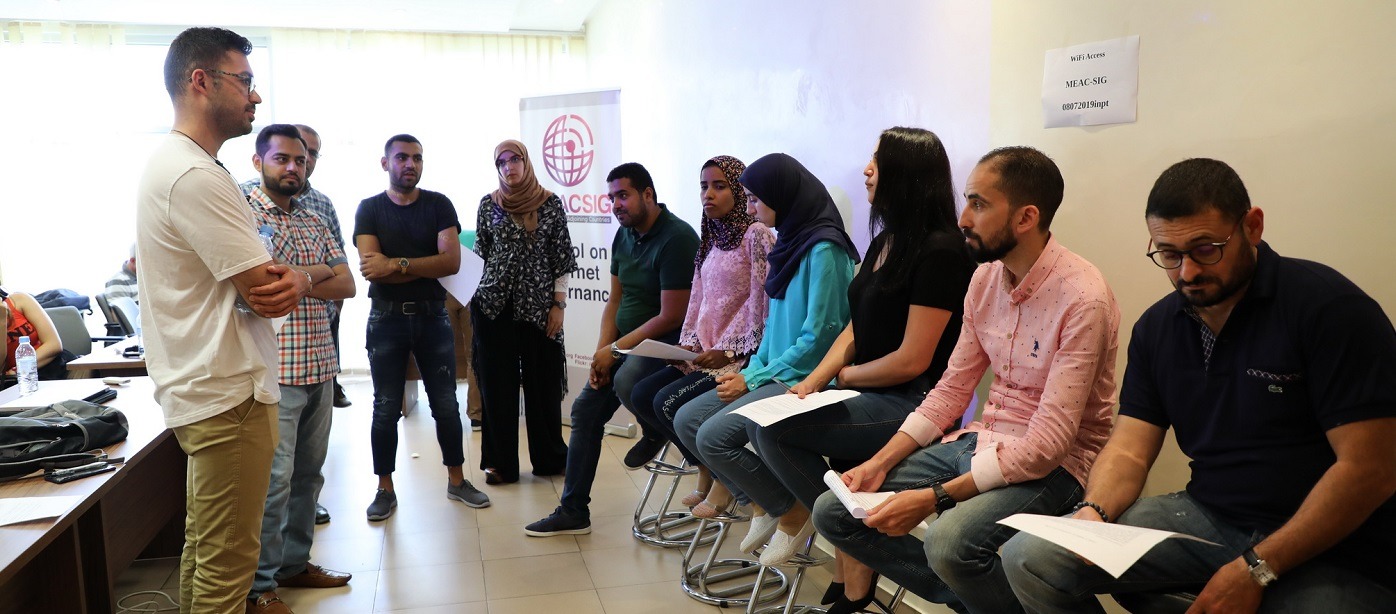The 6th Middle East School on Internet Governance (MEAC-SIG) took place this year in Rabat, Morocco, from 8-12 July. First held in 2014 in Kuwait, the school is an annual five days of intensive workshops that aims to inform and strengthen the regional Internet community and ensure active participation in national, local, and global Internet Governance fora. This year, it was hosted by The National Telecommunications Regulatory Agency (ANRT) of Morocco, and jointly organized by the Arab World Internet Institute, the Internet Corporation for Assigned Names and Numbers (ICANN), the Internet Governance Project at Georgia Tech, the Internet Society, and RIPE NCC.
The MEAC-SIG faculty includes experts from academia, civil society, business, the technical community, and government stakeholder groups.
This year’s speakers included Milton Mueller of IGP, Internet Governance expert Hanane Boujemi, Miriam Khuene of RIPE NCC, Fahd Batayneh of ICANN, and many other notables. They covered topics such as the IETF’s standardization, GNSO processes, Regional Registries, IGFs in all their capacities, and the inception and a historical view of Internet Governance.
The discussions were carried out in an open environment where everyone contributed their ideas together with multiple stakeholder groups. These groups mentioned how they started their journey in Internet Governance, their current involvement, and how they work with different institutions. Opportunities for engagement and participation were presented to the participants.
The most important discussions took place around the workshops “Trademarks, Copyright, and Internet Governance” and “Cybersecurity as an Internet Governance Issue.” The two sessions presented by Riyadh Al Balushi and Hadi Asghari attracted much attention and dialogue from the participants.
These subjects, the most ambiguous from a legal perspective for the region, and most taboo as well were the highlights of Days 4 and 5. They provided much knowledge to the attendees, who did not always know their fundamental rights online.
On the last day, there were working groups for participants to cooperate with and develop solutions for their communities. Their peers and a group of faculty experts helped by advising them on best practices.
In the Middle East, which is lacking in necessary infrastructure and where there is a need for more information on cybersecurity, digital rights, and Internet Governance, the MEAC-SIG serves as a beacon, giving people knowledge, opportunity, and hope that they can help shape the Internet.
After all, the Internet is all of us, working together.
Image credit: Internet Society/Urban Pixel Lebanon
